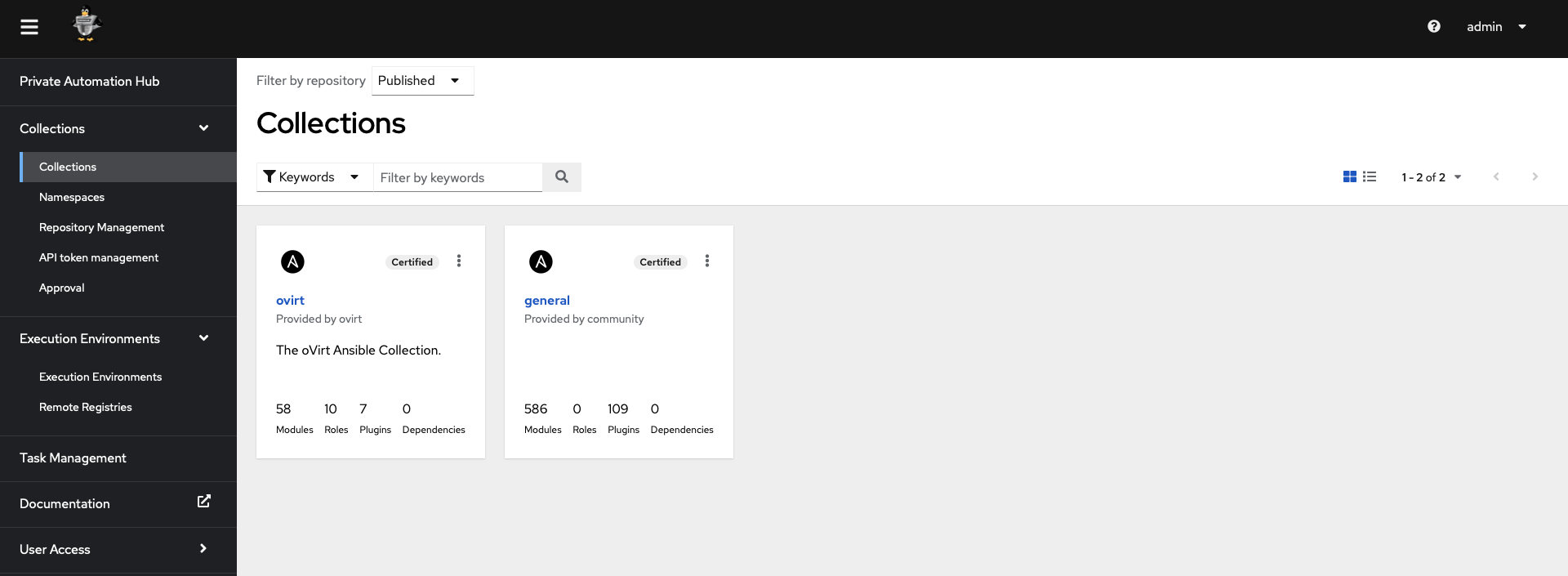The Oracle Linux team is pleased to announce the latest release of our enterprise automation solution, Oracle Linux Automation Manager 2.1.
Oracle Linux Automation Manager is an automation tool for deploying software, configuring systems, and orchestrating tasks such as upgrades and updates, in the form of playbooks. This release continues to focus on making the solution more user-friendly and adaptable to customer needs. With this philosophy, the following major features have been added to Oracle Linux Automation Manager 2.1, which enhance the flexibility and usability of our automation solution:
- Builder Utility
- Private Automation Hub
In Oracle Linux Automation Manager version 2.0, there was a shift from the Python virtual environment to execution environments. As part of that shift, Oracle introduced the Oracle Linux Automation Manager Execution Environment, which references the olam-ee container image available by Oracle Container Registry service. If you ever wanted to create your own execution environments with environment-dependent Python modules and collections included, you can start now.
Oracle Linux Automation Manager 2.1 allows you to quickly and easily create custom execution environments, with a streamlined process, using the Builder Utility.
Builder Utility
Builder Utility is based on the open source project ansible-builder version 1.2. It aids in generating container images that Oracle Linux Automation Manager can use as execution environments, in control or execution nodes, to run playbooks. This tool for creating execution environments is simple to use. It requires you to specify Ansible collections to be included, system dependencies, and Python dependencies—and you are ready to build the execution environment in just one step.
Private Automation Hub
If having numerous execution environment images raises a requirement for a central location to store them, then the private automation hub is the place for you. You can conveniently upload and share Ansible content with other team members, making collaboration virtually seamless. Private automation hub is based on the open source project galaxy-ng. It lets you synchronize all the user-generated collections, community collections, and execution environment images to use with Oracle Linux Automation Manager deployments.

Key benefits of Private Automation Hub:
1. Collaboration: Promotes collaboration within the organization by providing a centralized platform for sharing automation content.
2. Enhanced Security: Offers increased security as it’s confined within your organization’s network, helping reduce exposure to external threats.
3. Controlled Access: Incorporates role-based access control similar to Oracle Linux Automation Manager, only allowing authorized individuals to use and contribute.
4. Custom Collections: Private hubs allow you to create and share custom Ansible content that is relevant to your organization’s domain.
Start your automation journey
Further details about Oracle Linux Automation Manager can be found in the documentation. We encourage you to explore this resource to gain a comprehensive understanding of the product. In addition, engaging labs are available to get hands-on experience with Oracle Linux Automation Manager. These labs provide a great way to explore the features and functionality of the product in a guided environment. If you prefer to learn by watching, there’s a collection of informative videos that cover the basics of Oracle Linux Automation Manager. These videos can help you quickly get up to speed on the product and its capabilities. No matter what your preferred learning style is, there are resources to get you going with Oracle Linux Automation Manager.
References
• Oracle Linux Automation Manager Getting Started Guide
• Oracle.com/linux
• Download Oracle Linux
• Oracle Linux documentation and training resources
• Oracle Linux Premier Support Information
• Oracle Linux Automation Manager 2.0 Announcement
